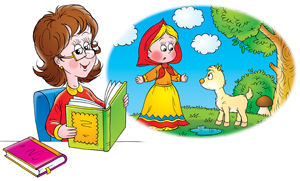This unique combination of effort, knowledge and experience constitutes what Lengalia is today, a portal specialized in helping you learn Spanish online.
Tools for language learning for free
Who does not know it: You want to do something, but you cannot for financial reasons. For example, it can be that it is January at the moment and you have spent all your money in December for parties and gifts. Or it is possible that the holidays will soon begin and that is the reason why you have to save your money. Sometimes, you are just broke. Learning of a language rather belongs to the things we give up, if we have to save our money or if we cannot spend too much money. Usually, you learn languages for fun or because they are one of the good resolutions which you have set at the beginning of the year and which you will abandon later bit by bit.
There is a large number of diverse tools for everyone who knows this type of daily problems. There are lot’s of tools & resources to help you practice spanish on a daily basis. For example lingo chefs allow you to cook delicious food and learn spanish at the same time! They are available for us although we often are not aware of it. For example, if we have not yet determined a holiday destination for our next holidays, it would be helpful to choose a country whose official language is the language we want to learn. To do this, we need to have money, of course; so, we must not be in a very critical financial situation. Beyond that, it should be noted that you are not to go on holiday in this country in order to be able to speak the language perfectly, when you will return. It is rather important to get used to the environment, to surround yourself with the language, to read timetables and posters and to listen to native speakers. That means that we will get to know the foreign language in its natural environment, which is very important.
But there are also learning tools for those who cannot afford to go on holiday. Here, the “tandem” service or rather the linguistic exchange should be mentioned, which is completely for free and offered by amalgamations of native speakers or schools like Lengalia. The latter was founded to teach Spanish completely for free with the only goal to bring humans together. That you meet a native speaker does not mean that he will quickly teach you to master his language. The goal of these meetings is rather to train and to develop the oral competences like linguistic expression and interaction. As in a “barter”, both dialogue partners will learn and gain from each other. This does not only refer to the language, but also to the culture. Through such services, it is possible to establish social contacts and maybe also a lasting relationship.
Beyond that, on websites like the one of Lengalia, you can find videos in Spanish about restaurants and the Spanish cuisine as well as about Podcasts to learn Spanisch, which deal with Spain and Latin-America. The latter make it possible to listen to native speakers, when they are talking about culture and important aspects of life and of the language in their own dialect. Also on websites like youtube we can find videos which orientate themselves towards reading books, which have different competence levels, and with whose help we can train our linguistic abilities.
Although I do not like stereotypes, I want to mention one, which is very popular. It says that the Catalans (Catalonia) are the most meanest Spaniards. This stereotype has caused the proverb which is mentioned in the title of this article: “La pela es la pela” (Money has no smell). True to the motto, this proverb calls for saving money or at least not to spend much of it. Even if acquisition of languages can surely be expensive, we wanted to show you some learning tools which are completely for free. We will continue to follow this approach also in future, so that you do not have to count every “peseta”!
Although I am of course against stereotypes, I want to mention that there is one regarding the Catalans, which is very popular. This stereotype says that they are the stingiest Spaniards. This prejudice led also to the proverb which makes up the title of this article: “La pela es la pela” (Money has no smell). This proverb emphasizes the importance of money and it stands for the opinion that you should not spend too much of it (according to the motto: “The less the better”). Although, it surely costs much money to learn a language, we wanted to present you with this text some tools which are completely for free. We will deal with this topic also in future, so that we do not have to count every penny.







